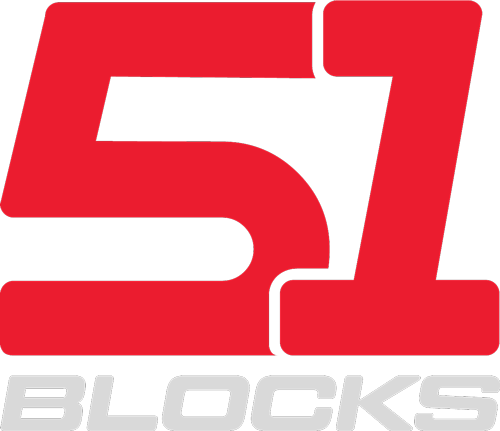Ever wondered if it’s possible to build a digital marketing agency that can run smoothly even when you’re not around?
The Ultimate Guide to Technology Infrastructure has got you covered. In this comprehensive guide, you’ll discover the essential technology infrastructure you need to establish for your digital marketing agency to thrive independently.
From understanding your agency’s unique requirements to implementing automation tools and leveraging cloud-based solutions, this guide provides practical insights to help you build a robust and efficient infrastructure.
With a focus on data security, compliance, and scalable communication systems, you’ll be well-equipped to create a digital marketing agency that operates seamlessly, allowing you to step back and watch it flourish.
Key Takeaways
- Assess agency needs and prioritize resource allocation strategically
- Implement automation tools for workflow optimization and efficiency
- Leverage cloud-based solutions for scalability and flexibility
- Ensure data security and compliance for trust and standards
Understanding Your Agency’s Needs
To build a digital marketing agency that runs without you, start by assessing your agency’s needs. Resource allocation is crucial in ensuring that your team is equipped with the necessary tools and support to effectively serve your clients. By understanding the specific needs of your agency, you can allocate resources strategically, ensuring that your team has the right technology infrastructure and support to thrive.
Additionally, client retention is a key consideration. Understanding your clients’ needs and preferences will enable you to tailor your services and communication to foster long-term relationships. By prioritizing resource allocation and client retention, you can lay a strong foundation for your agency to operate efficiently.
Now, let’s delve into the next steps of implementing automation tools to further streamline your agency’s operations.
Implementing Automation Tools
You can enhance your agency’s efficiency by implementing automation tools to streamline operations and optimize workflows. Automation tools can revolutionize the way your agency operates, making it more efficient and effective. Here’s how automation tools can benefit your agency:
- Workflow Optimization: Automation tools can streamline repetitive tasks, freeing up time for your team to focus on high-value activities.
- Efficiency Tracking: These tools provide valuable insights into your agency’s efficiency, allowing you to identify bottlenecks and areas for improvement.
- Customer Engagement: Automation tools can help you engage with customers more effectively, ensuring timely responses and personalized interactions.
- Lead Generation: By automating lead nurturing processes, you can efficiently move leads through the sales funnel, ultimately increasing conversion rates.
Implementing automation tools is a strategic move that can significantly impact your agency’s productivity and success.
Leveraging Cloud-Based Solutions
By leveraging cloud-based solutions, your digital marketing agency can enhance scalability and flexibility in its operations. Cloud-based solutions offer cost efficiency by eliminating the need to invest in physical infrastructure and allowing you to pay only for the services and storage you use.
This scalability means you can easily adjust resources to meet fluctuating demands, ensuring you’re not overpaying for unused capacity. Additionally, cloud-based solutions provide remote access, enabling your team to work from anywhere, promoting flexibility and collaboration.
Whether it’s accessing client data, managing campaigns, or collaborating on projects, the cloud allows for seamless teamwork. Embracing cloud-based solutions empowers your agency to adapt and grow without being hindered by traditional IT constraints, ultimately fostering a more agile and productive digital marketing operation.
Ensuring Data Security and Compliance
Amid the evolving digital landscape, safeguarding your agency’s data and ensuring compliance is paramount to maintaining trust and meeting regulatory standards. To achieve this, consider the following:
- Data Encryption: Utilize robust encryption methods to protect sensitive information from unauthorized access.
- Regular Security Audits: Conduct routine audits to identify and address potential security vulnerabilities within your infrastructure.
- Staff Training: Educate your team on data security best practices and ensure they understand the importance of compliance with regulatory requirements.
- Compliance Monitoring: Stay updated with the latest regulatory requirements and implement necessary measures to ensure ongoing compliance.
Establishing Scalable Communication Systems
Prioritizing establishing scalable communication systems enables seamless collaboration and efficient client engagement within your digital marketing agency’s infrastructure. Remote collaboration is essential for a modern marketing agency, and having the right communication systems in place is crucial to ensure smooth operations. Implementing tools such as project management platforms, video conferencing, and instant messaging not only fosters effective remote collaboration but also facilitates efficient workflows.
Project management platforms like Asana or Trello allow teams to coordinate tasks and deadlines seamlessly, while video conferencing tools such as Zoom or Microsoft Teams enable face-to-face communication regardless of location. Instant messaging platforms like Slack or Microsoft Teams also aid in quick decision-making and information sharing.
Frequently Asked Questions
How Can I Determine the Specific Technology Infrastructure Needs for My Digital Marketing Agency?
To determine your digital marketing agency’s specific technology infrastructure needs, start by understanding scalability. Consider the potential growth of your agency and ensure your technology can adapt.
Next, focus on technology integration. Look for tools and systems that seamlessly work together to streamline your operations.
What Are Some Common Challenges in Implementing Automation Tools for a Digital Marketing Agency, and How Can They Be Addressed?
When implementing automation tools for your digital marketing agency, you might face challenges like integration issues and resistance from team members.
Overcome these hurdles by thoroughly planning the implementation process, providing comprehensive training, and fostering a culture of adaptation.
Address technology infrastructure needs by considering cloud-based solutions for scalability and flexibility.
What Are the Key Considerations for Choosing the Right Cloud-Based Solutions for a Digital Marketing Agency?
When choosing cloud-based solutions for your digital marketing agency, consider the following factors:
- Scalability: Look for solutions that can easily scale as your agency grows. This will ensure that you can accommodate increased workloads and client demands without disruptions.
- Flexibility: Choose solutions that offer flexibility in terms of customization and configuration. This will allow you to tailor the tools to meet your agency’s specific needs and workflows.
- Cost-effectiveness: Evaluate the cost of the solutions and compare them to the value they provide. Consider factors such as subscription fees, implementation costs, and potential savings from increased efficiency.
- Integration with existing systems: Ensure that the cloud-based solutions can seamlessly integrate with your agency’s existing software and tools. This will prevent data silos and streamline your workflows.
- Data privacy, security, and compliance: Look for solutions that prioritize data privacy and provide robust security measures. Consider if the solutions comply with relevant regulations, such as GDPR or CCPA, to protect your clients’ data.
- Automation tools: Seek solutions that offer automation capabilities to streamline repetitive tasks and improve efficiency. This can include automated reporting, campaign management, or content scheduling.
- Workflow optimization: Look for solutions that can optimize your agency’s workflows, such as project management tools or task tracking systems. This will help improve collaboration and ensure timely delivery of projects.
- Communication systems: Consider solutions that offer communication tools, such as chat or video conferencing, to facilitate collaboration among team members and with clients.
- Collaboration support: Seek solutions that enable seamless collaboration among team members, both internally and with clients. This can include features like shared workspaces, file sharing, or version control.
- Industry standards and regulations: Ensure that the solutions you choose meet industry standards and comply with relevant regulations in your field. This will help you maintain credibility and ensure the protection of sensitive client data.
- Alignment with growth and future needs: Prioritize solutions that align with your agency’s growth and future needs. Consider if the solutions can support expanding service offerings, new client acquisition, or entering new markets.
How Can a Digital Marketing Agency Ensure Data Security and Compliance With Relevant Regulations and Industry Standards?
To keep your digital marketing agency’s data safe and compliant, there are several key steps you can take:
- Think of data encryption as the lock on your front door. By encrypting your data, you make it much more difficult for unauthorized individuals to access and decipher sensitive information.
- Implement access control measures to limit who can enter and what they can do inside your system. This can include using strong passwords, two-factor authentication, and role-based access controls.
- Manage compliance with relevant policies and regulations. Treat your data compliance efforts like a well-organized filing system, ensuring that you understand and adhere to all applicable laws and regulations related to data privacy and security.
- Clearly communicate your privacy policies to your team and clients. By being transparent about how you handle and protect data, you can create a culture of trust and security within your agency.
What Are Some Best Practices for Establishing Scalable Communication Systems Within a Digital Marketing Agency to Support Growth and Collaboration?
To establish scalable collaboration in your digital marketing agency, prioritize flexible communication systems that support remote work efficiency.
Invest in cloud-based tools like Slack or Microsoft Teams for real-time messaging, video conferencing, and file sharing.
Implement project management platforms such as Asana or Trello to streamline workflows and track progress.
Encourage transparent communication and provide training on these tools to ensure seamless collaboration and growth across your team.
Final Thoughts
Congratulations! You’re well on your way to creating a digital marketing agency that runs smoothly without you. With the right technology infrastructure in place, you’ve built a strong foundation for success.
Just like a well-oiled machine, your agency will continue to grow and thrive, allowing you to focus on the bigger picture. Keep embracing innovation and staying ahead of the curve; the possibilities are endless!






